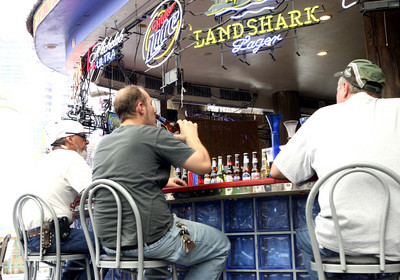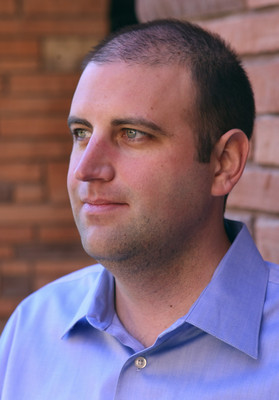Lawmaker proposes bill that targets boozing construction workers
A Northern Nevada lawmaker wants the legislative session that starts Monday to enact a law that will make "drinking of alcohol while working on construction projects" illegal.
"It's a serious issue," said Assemblyman Ty Cobb, R-Reno, who has proposed a legislative draft bill to give police departments the authority to arrest workers who are drinking while working on construction projects. "It's hard enough with individuals who are just working in somewhat dangerous situations to worry about a negligent situation, let alone a time when someone has imbibed and therefore has less faculties."
Cobb's bill draft is being made in response to "anecdotal evidence" and a series of Review-Journal articles last summer that found construction workers were entering the CityCenter construction site after drinking beer and liquor at nearby bars.
It is one of two bill requests coming before the 2009 Legislature that are a direct response to construction safety concerns that followed the deaths of 12 workers on Strip projects between December 2006 and June 2008.
The Assembly Committee on Commerce and Labor requested a bill that would require all workers to take a 10-hour Occupational Safety and Health Administration training class before they can work on construction projects.
The course was made mandatory at the CityCenter and Cosmopolitan sites as part of an agreement between labor unions and the projects' general contractor, Perini Building Co., after union members staged a 24-hour work stoppage last summer because of safety concerns at the projects.
Cobb's proposal addresses an issue raised after the Review-Journal spotted workers entering the CityCenter site after they had been drinking in bars near the construction site.
Federal, state and local officials told the newspaper there are no regulations or laws prohibiting a worker who has consumed alcohol from going to work on a construction site.
Building contractors and unions do have policies that prohibit construction workers from drinking on the job site.
Perini and the labor unions fired three construction workers who were identified from Review-Journal photographs of workers drinking, but Cobb said a simple firing is, obviously, an insufficient deterrent.
"This is an incredibly dangerous situation to have, not only for that individual worker, but for his or her fellow workers, and people who would eventually own those sites and live in those sites if they were poorly constructed," Cobb said.
Perini Building Chairman and Chief Executive Craig Shaw on Tuesday said the company, which has a "zero-tolerance policy" against alcohol and drug use, supports the intent of Cobb's bill proposal.
"While we have not seen the language of the actual bill, we would certainly endorse such a concept in the hopes that the potential for criminal liability will serve as an added deterrent for the small number of workers who demonstrate a lack of concern for their own safety and those of their fellow workers by drinking on the job," Shaw said in a statement.
The Nevada Building and Construction Trades Council, an affiliation of 17 unions, also has a zero-tolerance policy in place that prohibits union members from drinking on the job, said Steve Redlinger, spokesman for the Nevada Building and Construction Trades Council.
"I am not sure this will have any practical impact. That being said, I don't know that we wouldn't support it," Redlinger said.
Elisabeth Shurtleff, spokeswoman for Nevada Occupational Safety and Health Administration, said unless the new law changed the agency's authority, it would still not be able to take action against construction workers who found to be drinking on a job site.
The agency would continue to notify the employer if a worker is suspected of drinking, she said.
Cobb thinks the bill should just give the police jurisdiction to enforce the law.
"If a problem exists and it seems to an individual on the site that the person causing the problem has been drinking alcohol, there is no reason why they can't simply report it as a crime to the police," he said.
Contact reporter Arnold M. Knightly at aknightly@reviewjournal.com or 702-477-3893.























